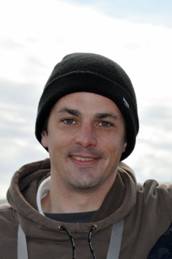|
TSC 2010 PLENARY 12 - Mindwandering and Consciousness
Jonathan Smallwood Escaping the here and now: Understanding the factors that enable the mind to wander
Jonathan Smallwood Conscious thought is rarely focused on precisely what we are doing - a fact that is clearly indicated by the everyday experience of mind-wandering or daydreaming. Jonathan began studying mind-wandering for his PhD in 1997 at the University of Strathclyde in Glasgow, Scotland. Since then, Jonathan has published approximately forty papers examining different aspects of the mind-wandering state, including several theoretical papers on how to accommodate the experience into current theories of cognitive science. In his experimental work, Jonathan pioneered the technique of triangulating between behavioral and experience sampling data to reveal the momentary nature of the mind-wandering state. To date, this approach has been successfully combined with a variety of online physiological indicators of information processing (such as heart rate, galvanic skin response, EEG & fMRI) and has revealed the role of mind-wandering in task error. He has also studied the relationship between mind-wandering and mental time travel and has shown that states of negative affect exert a powerful influence on the off-task state. Currently an assistant project scientist at the University of California, Santa Barbara, Jonathan is interested in the factors that enable the mind to escape the constraints of the here and now and is working with colleagues in the physics department to develop a time series model characterizing the ebb and flow of the mind-wandering state in real time.
|
|
|||||||||||||
